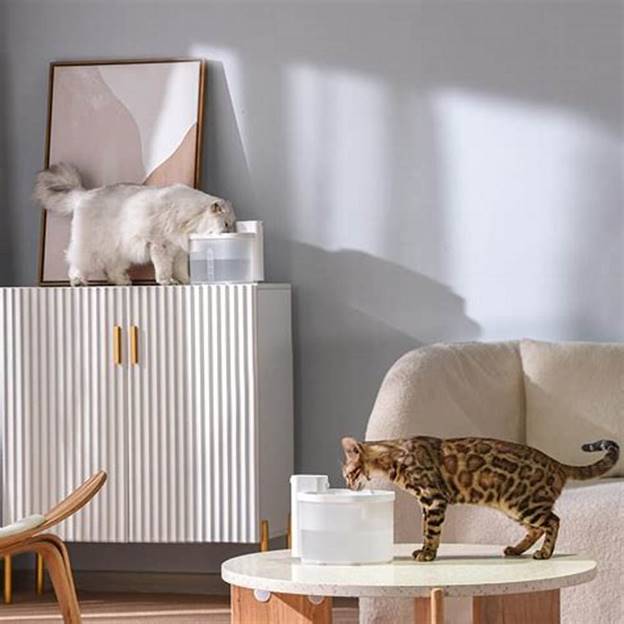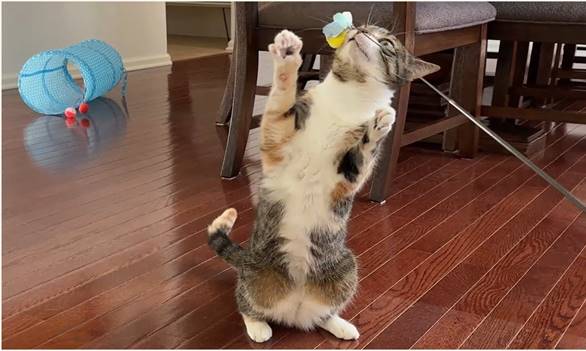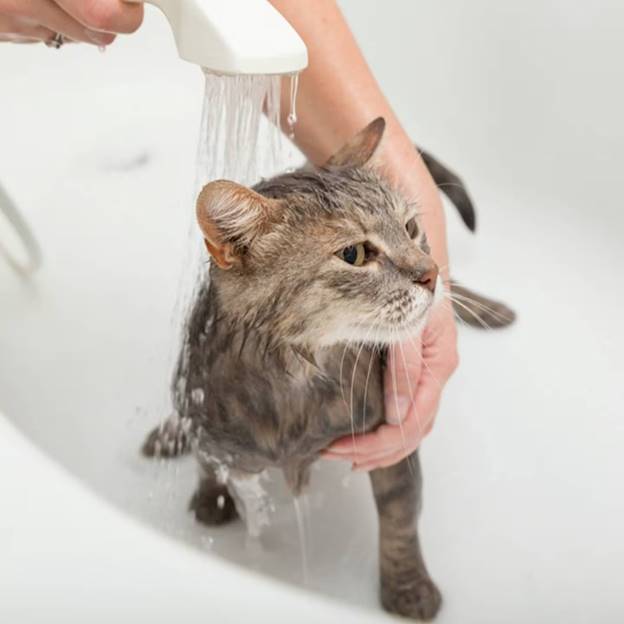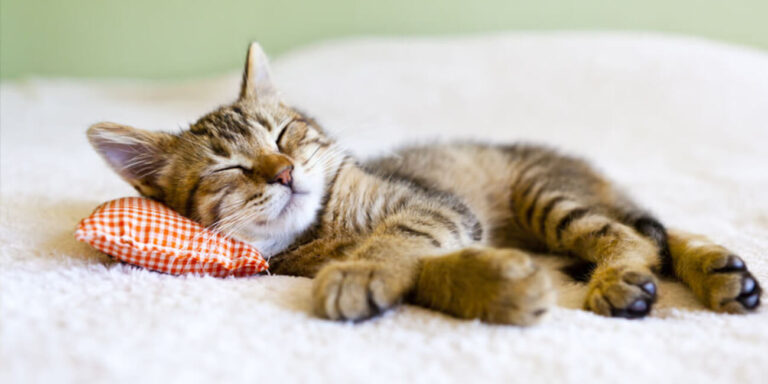Among the most common pets worldwide are cats. They are renowned for their kind dispositions, independence, and sense of humor. But taking care of a cat requires a lot of work. Maintaining the health and happiness of your feline friend requires proper cat care.
Nutrition is one of the most crucial facets of cat care. Due to their obligate carnivorous nature, cats need a diet substantial in protein and low in carbs. Selecting a premium cat food in Dubai that satisfies your cat’s nutritional requirements is crucial. Your cat should also constantly have access to fresh water.
Grooming is another essential component of cat care. Frequent grooming helps avoid hairballs and maintains the health and luster of your cat’s coat. Matting may be avoided, and loose hair can be removed by regularly brushing your cat’s fur.
Furthermore, frequent nail clipping can help keep your cat from developing pain from excessive nails.
Food and Hydration
Because they are obligate carnivores, cats must consume meat to thrive. Choosing the appropriate diet for your cat requires careful consideration of their nutritional requirements. When feeding your feline companion, bear the following in mind.
Selecting Suitable Food
It is crucial to feed your cat a high-quality, nutrient-rich diet that satisfies its energy requirements. Look for foods high in carbohydrates, protein, vitamins, minerals, and specific kinds of fats. If your cat suffers from certain medical conditions, such as urinary or digestive troubles, you might want to look into meals specifically made to address these difficulties.
Mealtime Routines and Portions
Adult cats should consume enough wholesome, high-quality food to fulfill their energy demands and maintain and repair their bodily tissues. Your cat’s size and energy production should determine how much food it receives. Pets differ significantly in their activity levels, which is a significant factor in calculating calorie consumption.
Adult cats should ideally have two small meals a day instead of one large one. This prevents overeating and helps maintain steady energy levels throughout the day. Always heed the feeding recommendations on the food’s container and modify the serving sizes to suit your cat’s specific requirements.
Hydration and Water

Fresh, clean water is a must for cats at all times. Ensure your cat’s water bowl is consistently clean and filled. Consider installing a water fountain to get your cats to drink more water since some of them love the sound of flowing water.
Wet food, in addition to water, can help keep your cat hydrated. It is an excellent alternative for cats that struggle to get enough water in their diet. It is important to remember, too, that damp food may need to be refrigerated and might be more expensive than dry food.
You can contribute to your cat’s long, healthy life by closely monitoring their dietary requirements, feeding schedule, and water intake.
Well-being and Health
One of a cat’s significant duties is to ensure its health and well-being. This section includes common health conditions, emergencies, immunizations and preventative medication, and regular veterinary care.
Veterinary Routine Care
Cats need regular veterinarian examinations to stay healthy. During these check-ups, the veterinarian will examine the cat physically, monitor its vital signs, and inquire about any changes in behavior or appetite. A wellness assessment for cats should be performed at least once a year.
The veterinarian may advise blood work and other tests in addition to the physical examination to look for any underlying medical conditions. If health issues are identified early on, the cat may respond better to therapy and have a better result.
Immunizations and Preventive Healthcare
Vaccinations are a crucial component of preventative care for cats. They guard against dangerous and possibly fatal illnesses, including rabies, feline immunodeficiency virus, and feline leukemia virus.
Apart from immunizations, preventive medicine includes routine parasite management, heartworm prevention, and flea and tick prevention. By taking these precautions, cats’ health is maintained, and illness is kept at bay.
Common Health Concerns
Throughout their lives, cats may encounter a multitude of health complications. Skin allergies, urinary tract infections, obesity, and dental disease are some of the cats’ most prevalent health problems.
It’s critical to identify these conditions’ warning signals and seek veterinarian care as soon as possible. Prompt intervention can mitigate the problem’s worsening and enhance the feline’s quality of life.
Emergency Circumstances
It’s critical to get veterinarian treatment as soon as possible in an emergency. Breathing problems, seizures, and trauma are a few typical emergencies.
Cat owners should ensure they have an emergency plan in place. This might entail understanding how to properly take the cat to the hospital and keeping the phone number of the closest emergency veterinary facility close at hand.
Maintaining a cat’s health and well-being necessitates routine well-being care, prophylactic medication, and swift reacwellnesses or emergencies.
Conduct and Instruction

Cats are exciting animals with distinct personalities. It is essential to comprehend their conduct to have a positive and harmonious relationship with them. Each cat owner must be aware of these crucial facets of cat behavior and training.
Comprehending the Behavior of Cats
Although they are renowned for being independent, cats need love and care. They communicate using vocalizations, body language, and scent marking. It’s critical to observe their behavior to comprehend their requirements and preferences.
Due to their innate hunting instinct, cats need mental and physical activity to maintain good health. Toys, scratching posts, and engaging play can help deter negative behavior.
Training Using Litter Boxes
Training a litter box is crucial for any cat owner. Because cats are inherently clean creatures, they would utilize a litter box instead. Selecting the appropriate kind of litter box and litter is crucial to guarantee your cat’s comfort.
Putting the litter box in a peaceful, isolated spot is best. Cats will prefer to eat, sleep, and use the litter box in different spots. Routine cleaning of the litter box is necessary to maintain your cat’s hygiene and prevent odors.
Scratching and Negligent Conduct
Scratching is a normal activity for cats. They scratch to sharpen their claws, stretch their muscles, and mark their territory. Giving them a scratching post might help prevent mischievous actions.
If they begin to scratch furniture or other items, diverting their attention to a scratching post is crucial. It is ineffective and detrimental to your connection with your cat to punish them for scratching.
Play and Socialization
Being gregarious creatures, cats love to spend time with their owners. Their emotional and physical well-being depends on playtime. Toys’ will-being active playing is essential to keep kids from becoming bored and engaging in disruptive conduct.
Socialization is equally crucial for connecting children to new people, animals, and situations that can help them avoid anxiety and hostility. It’s vital to offer them a secure and comfortable atmosphere and gradually expose them.
In conclusion, every cat owner must have a thorough grasp of cat behavior and training. By providing your cat with a comfortable and interesting environment, you can establish a pleasant and healthy connection with it and help avoid destructive behavior.
Hygiene and Grooming

Even though cats are recognized for being clean, they still need to have their hygiene and grooming needs met on a regular basis to stay happy and healthy. In this section, we will go over some of the fundamental hygiene and grooming techniques that every cat owner needs to be aware of.
Brushing and Coat Care
Although cats have a solid inclination to groom themselves, they require assistance keeping their coats healthy. Frequent brushing distributes natural oils throughout the coat, prevents matting and tangles, and removes stray hair.
Cats with medium and long hair need to be brushed more frequently than cats with short hair. Brushing your cat’s hair once or twice a week is advised to maintain the health of its coat.
Bathing and trimming nails
Cats don’t need to be bathed frequently because they are usually clean. However, if they get into anything filthy or stinky, they may need a wash.
When washing cats, use warm water and shampoo explicitly designed for cats; do not get water in their ears. Regular nail trimming is also advised to prevent their nails from growing too long and becoming uncomfortable.
Dental and Ocular Care
Your cat’s general health depends on routine dental and ear care. Every week, look for symptoms of an infection in your cat’s ears, such as redness, swelling, or discharge. To clean the outer ear, use a cotton ball or soft cloth; do not place anything within the ear canal.
Dental care is also critical, and you can help keep your cat’s teeth healthy by giving them dental treats and routinely cleaning them with toothpaste and a toothbrush made specifically for cats.
In conclusion, keeping your cat happy and healthy requires consistent grooming and cleanliness routines. Adhere to these easy recommendations to ensure your cat is clean, healthy, and comfortable.


